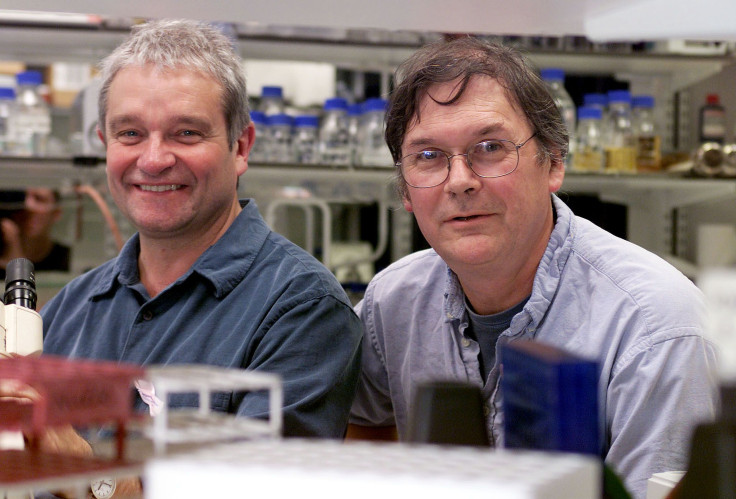Nobel Laureate Sir Tim Hunt Apologizes For 'Trouble With Girls' Comment

A Nobel laureate biochemist on Wednesday apologized for comments where he called for scientists to work in gender-specific labs, citing “trouble with girls” in science.
Sir Tim Hunt, who won the Nobel Prize in 2001 for his work in biochemistry, told the World Conference of Science Journalists in South Korea, on Monday: “Let me tell you about my trouble with girls … three things happen when they are in the lab … You fall in love with them, they fall in love with you and when you criticize them, they cry,” according to the Guardian.
The Royal Society member added that he was in favor of gender-segregated laboratories, saying that he didn’t want to “stand in the way of women.”
The Royal Society later condemned Hunt’s remarks in a statement: “The Royal Society believes that in order to achieve everything that it can, science needs to make the best use of the research capabilities of the entire population,” it said, adding that it promoted the role of women in science. “Sir Tim Hunt was speaking as an individual and his reported comments in no way reflect the views of the Royal Society.”
Hunt later apologized for the comments in a BBC interview on Wednesday. "I'm really sorry that I said what I said... What was intended as a sort of light-hearted ironic comment, apparently was interpreted deadly seriously by my audience."
He went on to defend some of his remarks, however. "I did mean the part about having trouble with girls," he said. "It is true that people - I have fallen in love with people in the lab and people in the lab have fallen in love with me and it's very disruptive to the science because it's terribly important that in a lab people are on a level playing field.
"I'm really, really sorry I caused any offence, that's awful. I certainly didn't mean that. I just meant to be honest, actually," Hunt said, the BBC reported.
© Copyright IBTimes 2024. All rights reserved.











